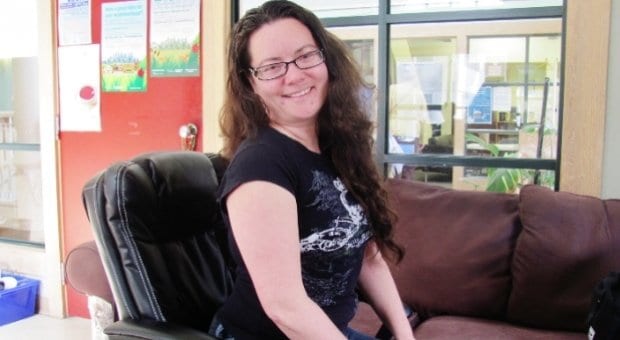Having lost, then regained, three-quarters of its federal funding last year, Vancouver’s Queer Arts Festival (QAF) organizers are welcoming increased funding from the BC Arts Council.
In a letter addressed to the society that runs QAF, the arts council praised the annual festival for its “incredible work and great aggressive programming.”
QAF sets the bar “very high on artistic achievement,” the letter says, and engages “a very healthy, broad demographic.”
While the BC Arts Council has funded QAF in the past, this year’s grant marks a transition from year-to-year project funding to a more stable operating grant.
“We got an increase from the BC Arts Council; our grant nearly doubled there,” says QAF’s acting artistic director, Rachel Iwaasa, “and we got an increase from the city as well.”
A spokesperson for the Ministry of Community, Sport and Cultural Development, which funds the BC Arts Council, confirmed in an email to Xtra that the province has given $12,000 in operating funding to QAF.
Iwaasa says that getting the operational grant from the province proves the festival is gaining attention as a “major player” in the arts scene, warranting stable funding commitment.
“The BC Arts Council is notoriously the most difficult to get onto operating funding because their funding has been up and down,” she says. “But the provincial government this past year has made much more of a commitment to the arts, which means for the first time in over a decade, there was a window of opportunity for them to add groups onto operating funding.”
The City of Vancouver has also allotted $15,000 to the festival. “The Pride in Arts group have received project grants from the city for several years,” says spokesperson Nancy Eng.
QAF is still waiting to hear about its funding application to the federal Department of Canadian Heritage.
Last year, Canadian Heritage suddenly cut QAF’s annual $44,000 grant because, it wrote in a letter to organizers, the festival no longer fit the sponsorship criteria to deliver “measurable and tangible results, to optimize available funds, and to meet the needs of Canadians.” (Toronto’s Buddies in Bad Times Theatre received a very similar letter in November.)
Two days after QAF went public about its funding cut, Canadian Heritage quietly reinstated 75 percent of its grant, without explanation.
Iwaasa says the organization met with a Canadian Heritage representative last fall “to see if there were any ways we could strengthen our application. The officer didn’t have a lot of advice.”
Iwaasa says QAF ended 2013 with a deficit because of the federal funding cut, but private and corporate donors have helped mitigate the consequences.
Iwaasa won’t divulge how much money was raised through community help but says the response was immediate and helped reinforce the festival.
“Thanks to the community coming together for us, QAF was able to weather last year’s cut from DCH, but not without some pretty serious belt-tightening,” she says.
“Although we remain financially very healthy — as the glowing report from [BC Arts Council] attests — the cut did mean we finished 2013 with a small deficit, the very first in QAF’s history,” she says.
Iwaasa says QAF is counting on the community’s support again this year and expects to hear about federal funding by the end of April.

 Why you can trust Xtra
Why you can trust Xtra


